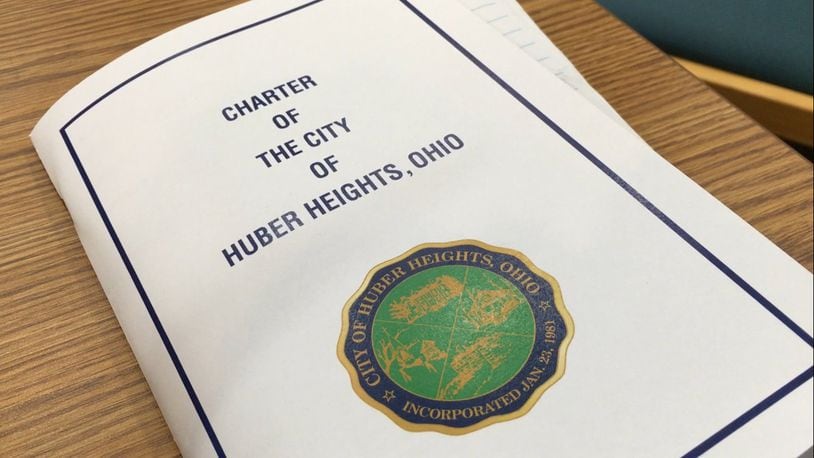MORE: 3 seek to be next Huber Heights mayor
The changes are due to the charter review commission, which began its work last April and dissolved in December. The first round of changes were put before voters in November.
A majority yes votes passes an issue.
Issues 4 and 10
Issues 4 and 10 are separate issues dealing with removal of city officials, specifically volunteer board and commission members and elected officials. The current charter makes removing volunteer board and commission members as difficult as removing city council members.
“It’s a pretty high bar for removal,” said City Council Clerk Tony Rodgers while introducing the changes. “The thought was with council appointing the boards and commissions, there should be a more streamlined process.”
MORE: Huber Heights candidates speak out on social media fights
Issue 4 would strike board and commission members from the current removal procedures, while Issue 10 establishes a new charter section addressing removal of those volunteer members.
Issue 10 would give city council ability to remove board and commission members for a lack of qualifications, incompetency, misconduct or neglect of duty. It would also provide those board members with written notification of the removal and an opportunity to be heard at a regular council meeting.
Issue 4 would additionally state council members could be removed for “violation of any expressed provision of the charter.” The language is recommended by the city attorney following a lawsuit blocking the city of Riverside’s council from removing one of its own council members.
MORE: Huber council candidates share vision for city
While the city attorney recommends adoption, Mayor Tom McMasters disagrees with the changes in Issues 4 and 10.
“That’s kind of an open way to phrase things,” he said during deliberation among council. “If there is a specific section that needs to be called out, it should be” in the section detailing prohibited actions.
Other issues
Issue 5 would remove the option of city council publishing adopted ordinances and resolution in newspapers and five public places, and instead add the requirement the information be posted on the city website and three public places.
Issue 6 would require the mayor to provide written objections with a veto. The language would change the requirement for the mayor to return a veto in 10 days to the next regular meeting of council. The language allows council to reconsider the legislation no later than the next scheduled meeting. Council could later re-introduce similar legislation.
MORE: Dayton Daily News voter guide
Issue 7 strikes the residency requirement for the city manager. The Ohio Supreme Court in 2009 upheld a state law barring cities from enforcing residency rules for city employees.
Issue 8 removes language designating the city’s director of public safety as the enforcer of weights and measurements laws. The county auditor is tasked with enforcement of weights and measurements.
Issue 9 amends the charter section on schools. The section currently states the city does not have jurisdiction over the Huber Heights City Schools; the amendment would add Bethel School District to the charter.
MORE: Election Day delays Huber Heights meeting
Issue 11 deals with citizen referendums. Currently, a referendum petition filed with the clerk of council on a specific resolution or ordinance would suspend the legislation from taking effect. Voters changed the charter in November 2016 to make resolutions effective immediately after passage. Issue 11, if passed, would reflect the 2016 change by removing resolutions from the referendum process. Ordinances could still be halted by citizen referendum.
About the Author
